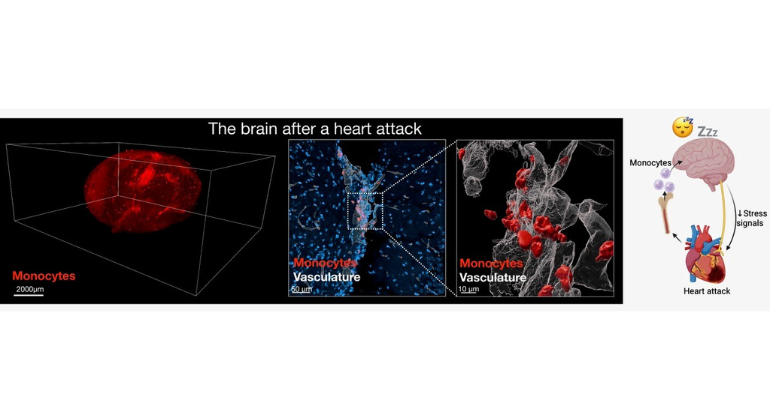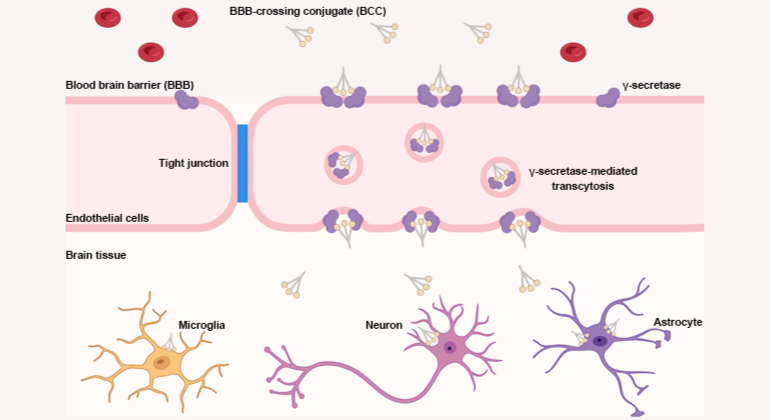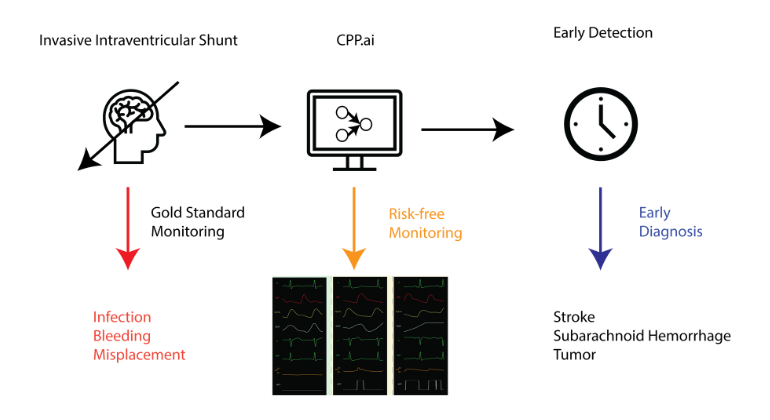Mount Sinai Scientists Find DNA Folding Patterns May Be Related to Neurological Disorders
New study used 3D genome mapping to analyze folding shape changes in neurons
In a publication released today in Nature Genetics, scientists from the Icahn School of Medicine at Mount Sinai and other institutions describe an extensive analysis of brain cells using new techniques to map the human genome in three dimensions. Their results indicate that improper folding of DNA in these cells may have implications for human health, including early associations with neurological disorders.
Long strands of DNA are folded and looped in intricate patterns to fit within the nucleus of each cell. Those patterns, once thought to be random, are now understood to be highly regulated and specific, with important implications for the sites where strands intersect. New methods allow scientists to perform 3D mapping of DNA to elucidate folding patterns and to pinpoint areas that might influence each other. Because this field is so new, very little is known about complex DNA folding in brain cells, how it is regulated, and the effect of errors.
For this project, scientists from Mount Sinai, Osaka University, Columbia University, and the New York Genome Center mapped the 3D genome in human and mouse neurons. They found a protein, SETDB1, that appears to regulate folding patterns for a specific genomic region that is important for neuronal connectivity and has also been associated with schizophrenia. The protein typically protects DNA in neurons; when it is damaged, the folds in certain parts of the chromosome become degraded and leave the DNA in a disorganized state.
“Our results suggest that the folding patterns of large regions of DNA – domains extending across hundreds of thousands or even millions of DNA base pairs – are carefully regulated through a multilayered network of controls,” said Schahram Akbarian, MD, PhD, Professor of Neuroscience and Psychiatry at the Icahn School of Medicine at Mount Sinai and senior author on the paper. “As we learn more about the regulation of each chromosomal domain, it appears more and more certain that proper folding patterns contribute to human health while errors are associated with dysfunction, including mental illness.”
“In this study, we saw that DNA sequences responsible for correct folding patterns overlapped with the location of genetic variants associated with schizophrenia,” said Pamela Sklar, MD, PhD, Professor and Chair of Genetics and Genomic Sciences at the Icahn School of Medicine at Mount Sinai. “We anticipate that further study could provide a deeper understanding of psychiatric disorders and potentially lead to the use of 3D genome mapping as an important component of personalized medicine.”
Paper cited:
Yan Jiang, Yong-Hwee Eddie Loh, et al. Kmt1e regulates a large neuron-specific topological chromatin domain. Nature Genetics. The DOI for this paper is 10.1038/ng.3906. You may use the DOI to retrieve the abstract and full text by adding it to the following url: http://dx.doi.org/.
About the Icahn School of Medicine at Mount Sinai
The Icahn School of Medicine at Mount Sinai is an international leader in medical and scientific training, biomedical research, and patient care. It is the medical school for the Mount Sinai Health System, an integrated health care system which includes seven hospitals and an expanding ambulatory network serving approximately 4 million patients per year.
The School has more than 1,800 students in MD, PhD, and Master’s programs and post-doctoral fellowships; more than 5,600 faculty members; over 2,000 residents and fellows; and 23 clinical and research institutes and 34 academic departments. It is ranked among the highest in the nation in National Institutes of Health funding per principal investigator. The School was the first medical school in the country to create a progressive admissions approach for students who seek early assurance of admission through the FlexMed program.
The Graduate School of Biomedical Science trains PhD and MD/PhD students, and offers master’s-level programs in areas such as genetic counseling, clinical research, biomedical sciences, and public health, and an online master’s degree in health care delivery leadership. The seamless connections between our medical school, graduate school, and hospital campuses provide an extraordinary environment for translating scientific discoveries into clinical treatments.
For more information, visit http://icahn.mssm.edu or find the Icahn School of Medicine at Mount Sinai on Facebook, Twitter, YouTube, and LinkedIn.
# # #
About the Mount Sinai Health System
Mount Sinai Health System is one of the largest academic medical systems in the New York metro area, with 48,000 employees working across eight hospitals, more than 400 outpatient practices, more than 600 research and clinical labs, a school of nursing, and a leading school of medicine and graduate education. Mount Sinai advances health for all people, everywhere, by taking on the most complex health care challenges of our time—discovering and applying new scientific learning and knowledge; developing safer, more effective treatments; educating the next generation of medical leaders and innovators; and supporting local communities by delivering high-quality care to all who need it.
Through the integration of its hospitals, labs, and schools, Mount Sinai offers comprehensive health care solutions from birth through geriatrics, leveraging innovative approaches such as artificial intelligence and informatics while keeping patients’ medical and emotional needs at the center of all treatment. The Health System includes approximately 9,000 primary and specialty care physicians and 11 free-standing joint-venture centers throughout the five boroughs of New York City, Westchester, Long Island, and Florida. Hospitals within the System are consistently ranked by Newsweek’s® “The World’s Best Smart Hospitals, Best in State Hospitals, World Best Hospitals and Best Specialty Hospitals” and by U.S. News & World Report's® “Best Hospitals” and “Best Children’s Hospitals.” The Mount Sinai Hospital is on the U.S. News & World Report® “Best Hospitals” Honor Roll for 2024-2025.
For more information, visit https://www.mountsinai.org or find Mount Sinai on Facebook, Twitter and YouTube.

After a Heart Attack, the Heart Signals to the Brain to Increase Sleep to Promote Healing
Oct 30, 2024 View All Press Releases







